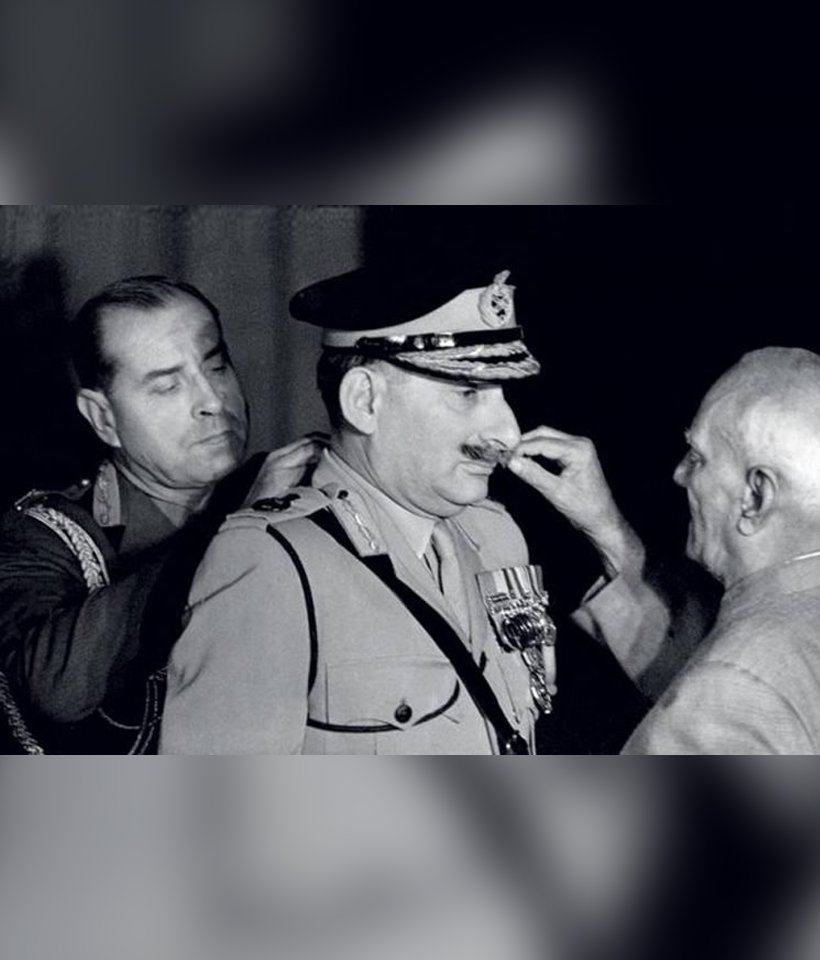The Best Of The Great - Remembering Sam Manekshaw On His Birth Anniversary
3 April 2018 5:46 AM GMT
He was close to pursuing medicine until destiny had its final word, Sam Manekshaw went on to become the first-five star Field Marshal of India besides leading courageously and tactfully in all the wars he had been part of. In four decades of service, he participated in five wars – World War II, India-Pakistan war of 1947, the Sino-Indian war of 1962, India- Pakistan war of 1965 and the Bangladesh Liberation War of 1971. He was also awarded the Padma Vibhushan and Padma Bhushan.
Glorious military career spanning four decades
He was born on April 3, 1914, to Parsi parents at Amritsar, Punjab. The initial plan was to pursue medicine and become a doctor, however, as an act of rebellion against his father’s refusal to send him to London to study medicine, Manekshaw applied for admission to the Indian Military Academy (IMA). Out of the 15 cadets selected through an open competition, he stood six in the order of merit.
He along with the other cadets formed the first batch to be trained at IMA in 1932.
Sam Manekshaw’s stint in the Indian Military is unparalleled. His distinguished military career spanned four decades and five wars, including participating in the World War II, while being attached to the British Indian Army. He is the first Indian Army officer to be promoted to the highest rank of Field Marshal.
Manekshaw went on to be the 8th Chief of Staff of the Indian Army in 1969.
Pakistan surrenders and Bangladesh is born
Sam’s years of military experience were soon put to the test as India decided to help the Mukti Bahini rebels against West Pakistani forces. But whether India was equipped to deal with the war was another question. Sam made it clear that India was not ready based on the ammunition and soldiers available at that time. Subsequently, Indira Gandhi refused Sam’s resignation, Sam then would guarantee a victory in the war if he would be allowed to prepare for the conflict on his terms and set a date for it. Indira Gandhi accepted the terms and the rest was history.
India joined the Bangladesh Liberation war in 1971, after Pakistan launched preemptive air strikes over North India. The subsequent Indo-Pakistani war was fought on two war fronts. When the Indian Army finally went to war in December that year, under Manekshaw’s leadership, it proved victorious against the Pakistan Army. Manekshaw’s first radio message to the Pakistani troops on 9 December 1971 was, “Indian forces have surrounded you. Your Air Force is destroyed. You have no hope of any help from them. Chittagong, Chalna and Mangla ports are blocked. Nobody can reach you from the sea. Your fate is sealed. The Mukti Bahini and the people are all prepared to take revenge for the atrocities and cruelties you have committed…Why waste lives? Don’t you want to go home and be with your children? Do not lose time; there is no disgrace in laying down your arms to a soldier. We will give you the treatment befitting a soldier“.
In a matter of just 13 days, Pakistan surrendered in Dacca (now Dhaka), on December 16, 1971. The war saw more than 90,000 Pakistani soldiers personnel taken as prisoners of war, and it ended with the unconditional surrender of Pakistan’s eastern half, resulting in the birth of Bangladesh as a new nation.
Apart from his great leadership qualities and military expertise, Manekshaw was also known for his quick wit.
Sam eventually died due to complications of Pneumonia and his last words were reported to be “I’m Okay”. Due to the controversies in which Manekshaw was involved post-retirement, it was reported that his funeral lacked VIP representation. No national day of mourning was declared, which is customary for a leader of national importance.
The Logical Indian salutes Sam for his bravery, courage, discipline and determination during his time in the Army and beyond. We will forever remember your contribution to our country and continue to get inspired by your history.
 All section
All section














